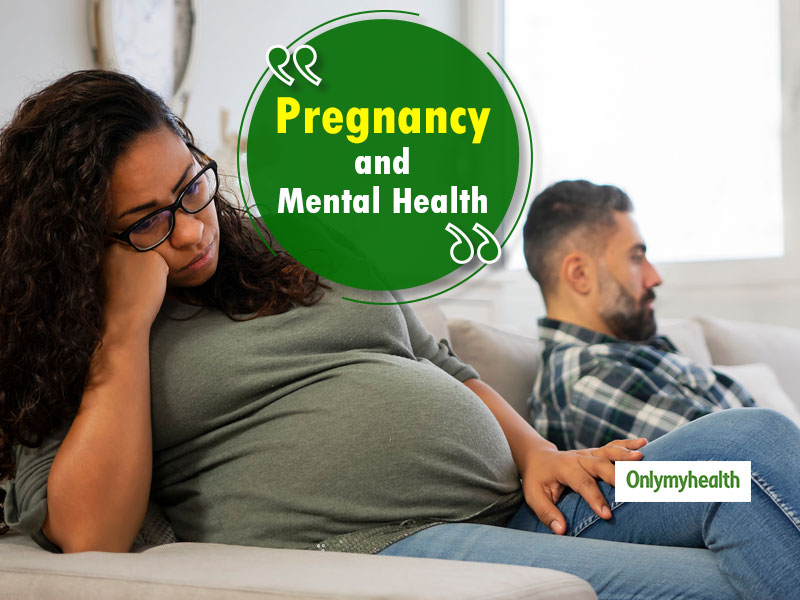
It is normal to be worried when you are pregnant, especially when it’s your first time. Some women even develop mental health problems during pregnancy. Pregnancy can be difficult which is why it is extremely important to keep your physical as well as mental health in check during pregnancy. These challenges might make you feel worried at times. Don’t be too surprised if you experience some major emotional or mental changes.
Table of Content:-
According to the World Health Organization (WHO), approximately 10 per cent of pregnant women experiences a mental disorder, primarily depression. In some extreme cases, women even commit suicide. Depression or any mental health condition should not be taken lightly or ignored, especially during pregnancy.
Effects of Psychiatric Disorders During Pregnancy

Psychiatric disorders such as depression or anxiety during pregnancy can have adverse effects on the baby as well as the mother. Several studies have shown that children born to depressed mothers might be underweight or the mothers might experience fetal growth retardation.
Preterm delivery is another common problem among pregnant women experiencing mental health problems. Other pregnancy complications include an increased risk of pre-eclampsia, operative delivery and infant medical conditions including respiratory diseases, prematurity and hypoglycemia.
Mental Health Conditions You Need to Be Aware of During Pregnancy
Mood swings are common during pregnancy, so you don’t need to freak out over it. But if you feel down or upset all the time, then it’s a concern. Some of the mental health conditions you need to be aware of during pregnancy include:
Depression
Depression is a common and serious health issue that affects the way you feel, think or act. A pregnant woman may experience an incessant feeling of sadness or irritability due to physical and mental changes in the body. It can be harmful to your unborn child, so get treatment as soon as possible in case you notice any symptoms of depression.
Also Read: 10 Powerful Tips to Overcome Depression
Anxiety

Anxiety is a feeling of fear or worry. It is easier to get stressed or worried during pregnancy. “Will I be a good mother?” “What is going to happen during my delivery” and many such questions may cross your mind and you start to feel anxious, which is not good for you or your child.
Bipolar Disorder
Bipolar disorder is a condition in which you might experience extreme mood swings. It affects the brain functioning causing unusual mood shifts. Bipolar disorder can have adverse effects on the health of the mother and the child.
Post-traumatic Stress Disorder (PTSD)
This mental health condition is triggered after witnessing or experiencing a terrifying event. Some of the common symptoms include flashbacks, anxiety or nightmares. Stress levels increases in pregnant women with PTSD.
A report published by the Institute of Research of Women and Gender, University of Michigan, stated that infants born to mothers with PTSD had a lower birth weight than infants born to mothers without PTSD.
Also Read: Post Traumatic Stress Disorder Guide: 5 Ways To Cope With PTSD
Panic Attacks

Some symptoms of panic attacks include accelerated heart rate, chest pain, nausea, light-headedness, shaking and numbness. Research has found that panic attacks increase during pregnancy. These attacks can be a major concern as they can impact the fetus and in severe cases may even lead to a miscarriage.
Eating Disorders
Giving birth to a baby requires a lot of energy and nutrients, so it is vital to eat more healthy food during pregnancy. If you don’t eat enough, it will lead to malnutrition and make you weak. Eating disorders can cause problems for your baby, including premature birth.
Talk to a Doctor
It is extremely important to get proper treatment for mental health conditions during pregnancy. If a pregnant woman doesn’t take care of herself, then these problems and habits can affect the growth of the unborn child. Talk to a provider about how to improve your chances of getting pregnant and giving birth to a healthy child.
Read more articles on Women's Health
How we keep this article up to date:
We work with experts and keep a close eye on the latest in health and wellness. Whenever there is a new research or helpful information, we update our articles with accurate and useful advice.
Current Version
